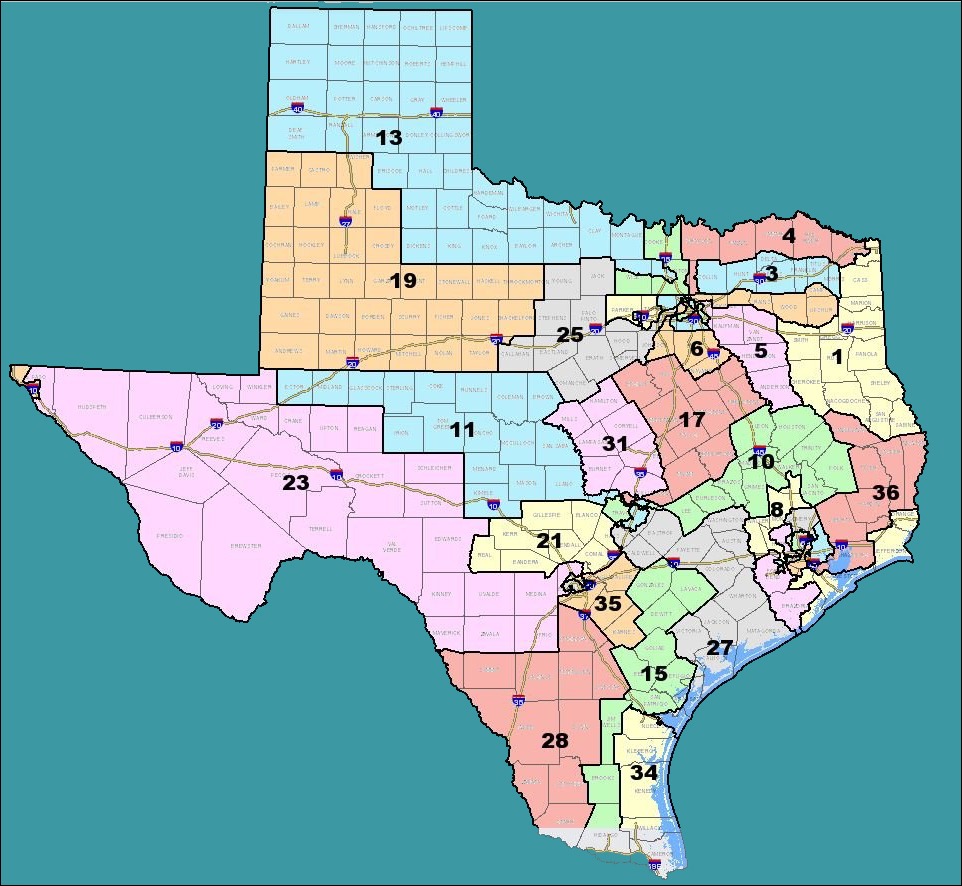
The Political Landscape Shifts as Texas GOP Looks to Capitalize on Redistricting
The Texas Republican Party's latest congressional map is raising eyebrows and igniting a heated debate about its potential implications for future elections. Observers are concerned that the new map, which some argue is designed to dilute the Hispanic vote, may be a calculated strategy to secure Republican dominance in the state.
A Closer Look at the Numbers: Hispanic Voter Turnout
In recent national elections, Hispanic turnout has shown an upward trend, which creates both opportunities and challenges for parties aiming for electoral success. However, the demographics of Texas, segmented into highly gerrymandered districts, could potentially minimize this growth. Recent data from organizations such as the Pew Research Center indicates that without proper attention to voter needs and outreach, the Texas GOP may be banking on a downturn in Hispanic turnout based on the new boundaries.
Community Engagement: Risks and Rewards
The real danger lies in the potential disenfranchisement of the Latino community. Historically, low voter turnout among Hispanic voters is often linked to a lack of engagement from political parties. For many residents, especially in urban centers like Austin and Houston, the feeling that their votes do not matter may lead to further apathy.
Counterarguments: A Diverse Hispanic Electorate
It's crucial to remember that speaking broadly about the Hispanic community can overlook the diverse interests and needs within it. Various Latino groups across Texas have different priorities, and there’s a significant push within some demographics to mobilize and ensure their voices are heard in the political arena. The new map could galvanize a response from these groups, perhaps even unexpectedly boosting turnout in future elections.
Public Reactions and Legal Challenges
In response to these changes, various advocacy organizations are raising their voices, challenging the legality of the redistricting process. Several lawsuits have already been filed, claiming that the map violates the Voting Rights Act by limiting the electoral power of Hispanic communities. Legal experts point out that if these challenges gain traction, they could not only reshape the current map but also influence future redistricting efforts across the country.
Looking Ahead: Predicting Election Dynamics
Experts predict that the outcome of these legal challenges could pivot the predictions for the upcoming elections, especially in heavily Hispanic-populated districts. The GOP's strategy may face repercussions should courts find any practices that undermine minority voting rights. This dilemma emphasizes the importance of having a dynamic electoral system that reflects the diversity of Texas.
Decisional Insights for Voters
For voters in Texas, understanding how redistricting can impact their voting power is essential. Residents should consider engaging in local politics, educating themselves on the issues at stake, and participating in advocacy efforts. Every vote counts, and making informed decisions can influence future political landscapes.
In light of these developments in Texas politics, it's crucial for citizens, especially within the Hispanic community, to remain vigilant and proactive. Keeping abreast of changes in local legislation and participating in discussions about community needs can significantly impact voter mobilization and representation. Every vote holds power, and understanding the stakes involved in Texas's congressional map can create pathways for more inclusive policies in the future.
 Add Element
Add Element  Add Row
Add Row 



Write A Comment